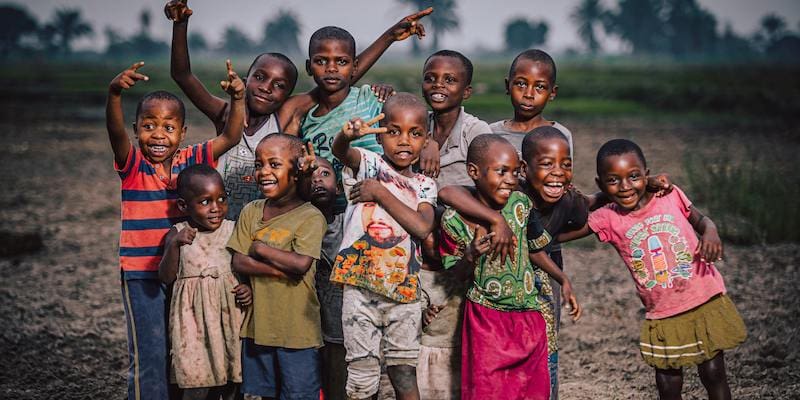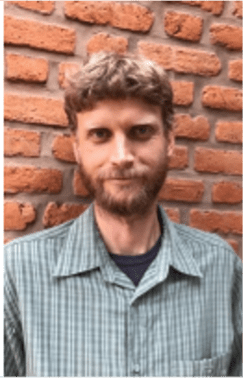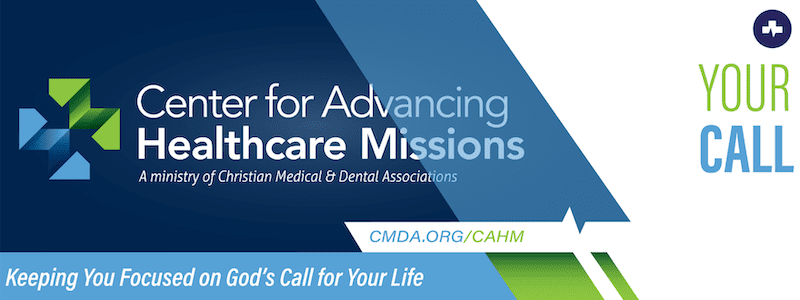
The Art of Medicine: Finding the Deeper—Stories of the Unseen
Christian Medical & Dental Associations®
May 7, 2025
by Eric McLaughlin, MD
She may just be the forgotten ingredient in the recipe for compassion fatigue.
For the second time today, she knocks on my busy clinic door, a clean dress and a splash of makeup that you only see in Burundi among the better-to-do. In easy French, she tells me again that she is suffering so greatly she doesn’t think she can wait in the long line for her turn to consult me. I look at the peasant lady already in my office, struggling to find pennies for heart failure treatment who probably couldn’t come up with a bonjour. I want to hold the line and tell her to wait her turn, but I don’t know if I have such fortitude in me today, and frankly I’m not sure anyone will be well served by being interrupted repeatedly for the next two hours while she waits. So I tell her quietly that I’ll see her next.
When she sits in the chair next to me, she launches into a description of the headaches she’s had for the last eight years and all the various doctors she has seen who haven’t helped her. It sounds like atypical migraines with no signs of anything dangerous. I can’t believe this was so urgent that she had to skip all the poor farmers who are mostly much sicker than her. I talk to her about some lifestyle changes and about starting a preventative medication. She can’t believe I’m not ordering any blood tests, and she thinks she’s already tried all those medicines and they didn’t work, although she’s not quite sure of the names.
I’m so frustrated with her right now. I doubt I can help her, and to be honest, I am not terribly interested in doing so. I’m not sure why she came to see me today, but I’m pretty sure the visit is going to end with her asking me to sign a note for her to be off work.
And then it happens.
Halfway through a sentence that I didn’t catch, she kind of half-laughs and turns her face to the side, staring at the wall with a suddenly sad expression. The whole gesture reminds me of a lady from my church small group when I was in college who used to do the same thing every week when she talked about her broken relationship with her teenage son. Now other details come into focus. The lipstick smudged on the left side. The place where her purse strap has been sewn back on. The way she is fidgeting with the buttons on her phone without thinking. I wonder about her family, her husband, her sorrows and also her moments of joy and peace.
I don’t know her story, but I start to imagine she has one. She is now a person to me instead of a problem. Compassion returns like a deep breath. The Holy Spirit breaths in me, and I decide to give this one more try.
The novelist Graham Greene wrote, “…when you visualized a man or a woman carefully, you could always begin to feel pity…that was a quality God’s image carried with it…when you saw the lines at the corners of the eyes, the shape of the mouth, how the hair grew, it was impossible to hate. Hate was just a failure of imagination.”
For decades, I have heard healthcare professionals talk about “the art of medicine” in contrast to the science of it. My understanding of what is meant by that is something like wisdom. “The art of medicine” is evoked where the professional guideline or the scientific evidence doesn’t tell you exactly the right thing to do in this situation, and so there is a need for this wisdom to correctly apply the science of medicine in a particular scenario. This is true, and this kind of wisdom is important, but the idea doesn’t show much understanding about what art is.
Art has to do with imagination. An artist creates something that reveals truth or beauty through a lens of imagination. Poet Scott Cairns goes as far as to say, “It’s not a poem until you discover something.” If what often goes by the moniker of “the art of medicine” is actually “the wisdom of medicine,” then is there a role for the artistic imagination in medically caring for patients?
I wonder if people outside the world of healthcare missions really understand how challenging compassion fatigue is in a severely under-resourced area. Maybe they understand, or maybe they assume that, though it would be nigh impossible for them, those who have chosen this work must have some kind of unending well of compassion within them. I have occasionally met people like that, but just as often, I have met workers who are motivated just as much, if not more, by notions of justice or vocation or impact, or something besides an internal capacity for compassion. Whatever the initial motivation, keeping your compassion alive in the face of endless need and broken systems is a central struggle for everyone in healthcare missions.
One key tool our creative God gives us to fight this good fight is that of imagination. One of the features of burnout is depersonalization. We collapse our experiences of the people around us from fully human individuals into 2-D flat profiles. As our hearts are burdened, the temptation is to view those in front of us as side characters in our story. Before they came to see us, they didn’t really exist, and they won’t exist much more meaningfully after they leave. They are poorly imagined minor actors in a drama centered on our struggle.
Here is where we need imagination to lead us to discovery. We employ art to imagine the full-bodied stories of the people in front of us. We can start where good imagination often begins: with details. One patient’s particular vocal tic or way of walking. The way another’s elderly wife knows she has to speak loudly to him was in fact forged from a long experience before they ever came to see me. Maybe there was a time when this woman’s headache caused her to lash out at her daughter, but she regretted it afterward, and maybe she even asked for forgiveness later. How many moto-taxis did this guy have to take to get here, and what will it be like for him to return to his home tomorrow morning and tell his wife about his trip? Imagination like this reminds us that our patients (and co-workers!) are not characters in our story, except in the way we might be characters in theirs. The story is God’s, and only He can weave these endlessly complex threads together into a tapestry.
Like all art, this process is cultivated by practice. Whenever I make hospital rounds with my team of nurses and medical students, we start with prayer. This moment is an opportunity for several things, but imagination is one of them. We often pray: “Lord, we do not know these people. We only know their lives are in such crisis that they cannot stay at home. But you know them. You know every day of their lives and every thought of their hearts. Help us to see them as you see them and treat them with your compassion.”
Wherever we strive to enter under-resourced areas and follow the example of our Lord Jesus, our hearts can run thin and weary. This everyday practice of imagination uses the art of medicine in an oft unconsidered way: to birth compassion again in us.
 Eric McLaughlin, MD, is a family medicine missionary physician with Serge and a medical school professor for Hope Africa University in Burundi. Along with his wife Rachel (also a physician), he has lived in East Africa for 15 years. He’s the author of Promises in the Dark: Walking with Those in Need Without Losing Heart, which explores the myriad ways his heart has been challenged to persevere in the long work of caring for those in need. He has also written for Christianity Today and Mere Orthodoxy. When not writing, teaching, doctoring or team-leading, Eric enjoys songwriting, playing German board games and baking artisan bread. Eric and Rachel have the distinction of having three kids born on three different continents. His stories, reflections and eight albums of his music can be found at his team website wordandeedafrica.com.
Eric McLaughlin, MD, is a family medicine missionary physician with Serge and a medical school professor for Hope Africa University in Burundi. Along with his wife Rachel (also a physician), he has lived in East Africa for 15 years. He’s the author of Promises in the Dark: Walking with Those in Need Without Losing Heart, which explores the myriad ways his heart has been challenged to persevere in the long work of caring for those in need. He has also written for Christianity Today and Mere Orthodoxy. When not writing, teaching, doctoring or team-leading, Eric enjoys songwriting, playing German board games and baking artisan bread. Eric and Rachel have the distinction of having three kids born on three different continents. His stories, reflections and eight albums of his music can be found at his team website wordandeedafrica.com.
“In alert expectancy such as this, we’re never left feeling shortchanged. Quite the contrary—we can’t round up enough containers to hold everything God generously pours into our lives through the Holy Spirit” (Romans 5:4-5, MSG)
Read More“And these are but the outer fringe of his works; how faint the whisper we hear of him! Who then can understand the thunder of his power” (Job 26:14)?
Read More“Not that I was ever in need, for I have learned how to be content with whatever I have. I know how to live on almost nothing or with everything. I have learned the secret of living in every situation, whether it is with a full stomach or empty, with plenty or little. For I can do everything through Christ, who gives me strength” (Philippians 4:11-13, NLT).
Read MoreConsultBridge is a non-profit platform connecting frontline healthcare missionaries with specialist doctors for virtual consultations. By providing timely medical expertise in underserved regions, it empowers missionaries to deliver better patient care while specialists contribute their skills from afar.
Read MoreA physician’s journey from Ethiopia’s famine relief to medical teaching in China reflects resilience, faith and service. Through life-saving care, gospel outreach and mentorship, their story highlights enduring hope and the transformative power of compassionate healthcare and ministry
Read MoreIn a tech-saturated world, Dr. Ruth Lindberg explores how constant digital distractions can pull us away from a deeper relationship with Jesus. She offers practical tips for reducing screen time, refocusing our attention and embracing the peace and presence of God.
Read MoreToday, the Tenwek Community Health and Development (TCHD) program little resembles the original program begun 40 years ago. That is a good thing! The goals of the program haven’t changed, but the strategies certainly have evolved.
Read MoreWhen we decided to attempt a public health campaign for pediatric pedestrian safety, we opted for an emphasis on community and solidarity, believing these cultural values were more likely to anchor the message beyond one cycle of road traffic accidents.
Read MoreJust months before the end of our four-year term in Nepal, a young mother died at our hospital. Though our staff did nothing wrong and worked tirelessly to save her, those local leaders took advantage of the situation to foment hostility. Before we knew it, a volatile, angry mob was at our door, making demands and threats.
Read MoreI am a family medicine physician three years out of residency seeking to rejoice in what I am suffering for the sake of His body. I live with my husband and our three young children, with a fourth on the way, in a Central Asian country run by a terrorist group very much in need of the gospel.
Read More
